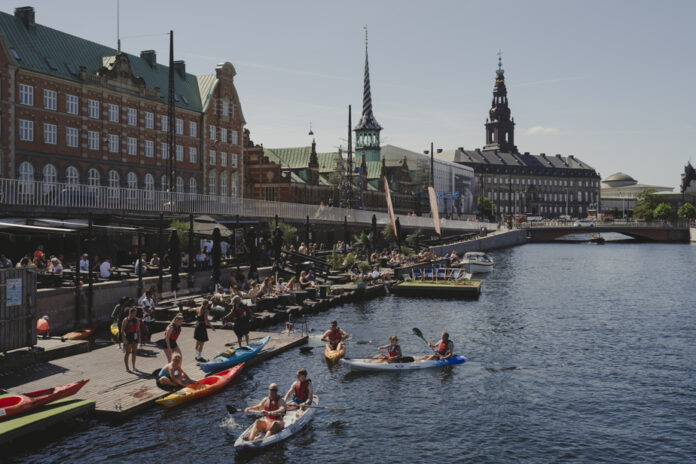All countries want to have companies that make them proud and shine around the world. In extremely rare cases, it happens that the local flagship becomes larger than the national economy.
This is what is happening in Denmark, which is currently experiencing a period of glory with the success of Novo Nordisk, a company born on its territory 100 years ago.
The pharmaceutical manufactures the two most popular products in the world today, Ozempic and Wegovy. These two drugs are very successful in treating diabetes and obesity, ailments that afflict millions of people and that are very expensive for health systems, public or private.
Novo Nordisk’s products are currently the only ones to have obtained approval from the Federal Drug Administration, which opened up the American market and the entire world. The demand far exceeds the volume of production that the company is able to supply.
Investors have jumped on the title of Novo Nordisk, whose value has more than doubled in a year. At more than $435 billion on NASDAQ on Friday, the company’s market capitalization now exceeds the gross domestic product (GDP) of its native country of 6 million people, Denmark, which stands at $398 billion.
Quebec, with its 8.7 million inhabitants and a GDP equivalent to that of Denmark, has no company that comes even remotely close. The largest market capitalization in Quebec is that of CN, at some 96 billion Canadian dollars (70 billion US).
The Danish economy therefore benefits greatly from the success of Novo Nordisk. Its currency, the krone, whose value is linked to that of the euro, is strengthening thanks to the significant exports of its flagship company. This allows the central bank of Denmark to keep its key rate lower (3.35%) than that set by the European Central Bank for the euro zone (4.25%), and to prevent its currency from soaring. . The population, on the other hand, benefits by paying less interest on mortgages.
The country has just raised its economic growth forecast for 2023 from 0.6% to 1.2%, a revision largely due to the performance of Novo Nordisk.
The weight of pharmaceuticals in the national economy is such that Danish economists are wondering whether the country should not adopt a national accounting system excluding the company, to have a better picture of its economic situation.
As long as Novo Nordisk is on a roll, no one worries, but there are still risks in relying so much on one company.
Finland can attest to that. Nokia, the country’s flagship and pride, dominated the global mobile phone market for two decades. Although the company never had the importance that Novo Nordisk has in Denmark today, it was the largest market capitalization in Europe and put its country on the map of the global economy.
Nokia saw its market swallowed up at spectacular speed by competitors Apple and Microsoft, leaving thousands of layoffs and a big hole in the Finnish economy.
It could happen in Denmark and Novo Nordisk. The company currently enjoys a dominant position because its products are the only ones approved and sold in the main markets around the world. Things could change if competition arises. The American company Eli Lilly is in the race with its diabetes and obesity product, Mounjaro, which is awaiting approval from the Federal Drug Administration.
If the Nokia scenario repeats itself with Novo Nordisk, the consequences could be less dramatic in Denmark than in Finland. The Danes can boast of having other big names among their business citizens.
The toy giant Lego as well as Maersk, the container transport juggernaut, are companies which do not display the spectacular growth rate of Novo Nordisk, but these heavyweights of the national economy also have an indisputable reputation in the global scale.





